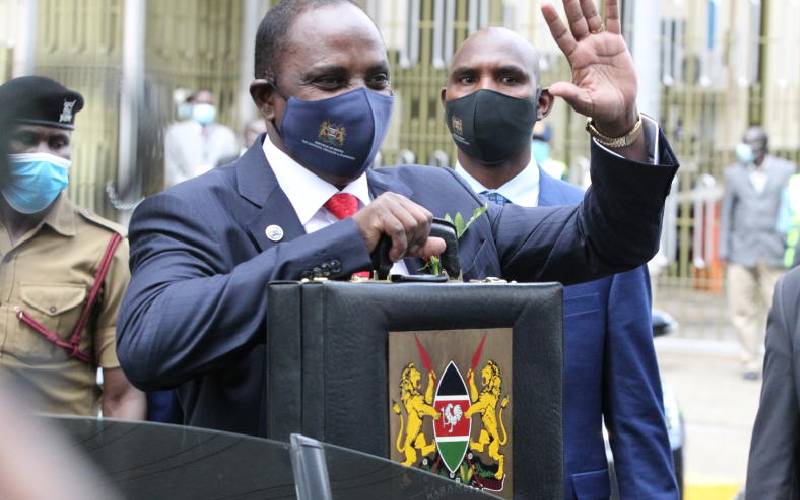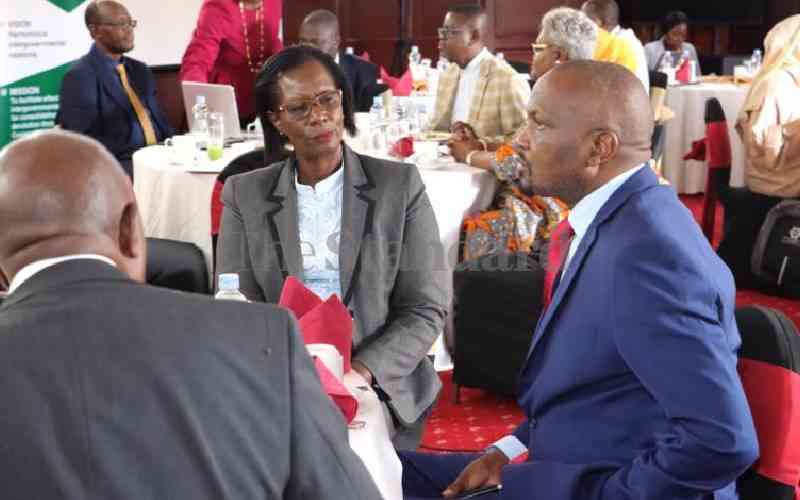
The Constitution envisaged a participatory approach to policy-making where public policy, including fiscal policy, is developed with the participation and contribution of the citizens. There has hence been a rich discourse on tax policy and regulatory frameworks.
Such deliberations have been and continue to be instrumental in developing a tax system that is in harmony and aligned with the country’s economic and social context.
An effective tax system conforms to the principles of taxation, which include equity, neutrality, efficiency, predictability, simplicity and fairness. A tax system that takes into account these principles ensures that not only is the tax borne proportionately, but also the distortionary effect of taxation is minimised.
To that end, a number of policy and administrative measures have either been adopted or are being institutionalised. First, the annual Finance Acts and the occasional Tax Laws (Amendments) make changes with a view to bringing clarity to sections of the laws, entrenching good practices, expanding the tax base or introducing legislation to curb tax avoidance and evasion. Being participatory and benefitting from the submissions to the National Treasury from diverse range of stakeholders including business member organisations and professional bodies, these amendments routinely attract robust and healthy debates.
Secondly, a tax regime should also be guided by a national tax policy. A national tax policy is an overarching framework that broadly sets out parameters for taxation. These include the rules and guidelines for regulating taxation, taxes to be levied, and the governing principles of the tax system.
In the quest to align with the principles of taxation, a national tax policy offers a medium-term planning horizon for taxpayers thereby infusing predictability, as it is reviewed every 5-10 years depending on the jurisdiction. Kenya has commenced initial considerations revolving around the development of a national tax policy.
Thirdly, with the medium-term expenditure framework that sets out a three-year public spending plan in place, the development of the corresponding revenue strategy is currently underway. The strategy helps bring alignment between expenditure and revenue mobilisation sides, by formulating a host of tax system reforms and revenue mobilisation mechanisms.
Fourthly, countries give tax incentives for a number of reasons: supporting specific sectors where there are skill gaps by incentivising investors with the potential to facilitate skills transfer, attracting investment and spurring economic growth, promoting exports, creating employment or enabling strategic national programmes such as Vision 2030 and the Big 4 Agenda. By foregoing potential revenue, the country expects a multiplier effect.
Dr Omar is commissioner, strategy, innovation and risk management at KRA
 The Standard Group Plc is a multi-media organization with investments in media
platforms spanning newspaper print operations, television, radio broadcasting,
digital and online services. The Standard Group is recognized as a leading
multi-media house in Kenya with a key influence in matters of national and
international interest.
The Standard Group Plc is a multi-media organization with investments in media
platforms spanning newspaper print operations, television, radio broadcasting,
digital and online services. The Standard Group is recognized as a leading
multi-media house in Kenya with a key influence in matters of national and
international interest.
 The Standard Group Plc is a multi-media organization with investments in media
platforms spanning newspaper print operations, television, radio broadcasting,
digital and online services. The Standard Group is recognized as a leading
multi-media house in Kenya with a key influence in matters of national and
international interest.
The Standard Group Plc is a multi-media organization with investments in media
platforms spanning newspaper print operations, television, radio broadcasting,
digital and online services. The Standard Group is recognized as a leading
multi-media house in Kenya with a key influence in matters of national and
international interest.










